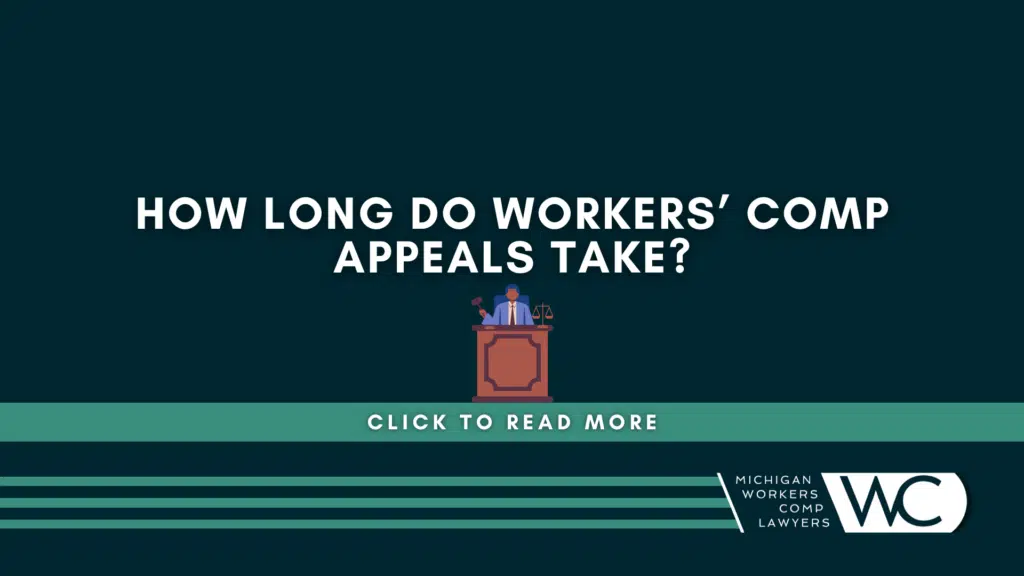Michigan lawyer explains how workers’ comp is not a fringe benefit and how employees hurt on-the-job can have legal rights to compensation.

We get many frantic telephone calls and emails from people hurt on-the-job. They are confused and scared because they don’t know what to expect. Who is going to pay their medical bills? Will they receive lost wages if unable to work? Is Michigan workers’ comp a fringe benefit they needed to have purchased themselves before getting hurt? Here is some information about legal rights.
Michigan passed its first workers’ comp law in 1912. It was designed as a compromise between labor and business interests. Employees hurt on-the-job are now guaranteed medical and wage loss benefits regardless of their fault. But they are limited in what they can collect. Employers get protection from civil liability and cannot be held responsible for pain and suffering damages.
Is workers’ comp a fringe benefit?
No, workers’ comp isn’t a fringe benefit in Michigan. It is a type of insurance that is purchased by employers to protect employees hurt at work. It is required for any business that has 3 or more employees at a time or 1 employee for 35 or more hours for 13 or more of the preceding 52 weeks. Penalties for not having this type of insurance include civil fines and possible imprisonment for up to 6 months.
Workers’ comp is not a fringe benefit in Michigan and is a system that is setup to pay for all reasonable and necessary medical treatment. This includes but is not limited to: ambulance runs, emergency room visits, hospital stays, doctor appointments, physical therapy, injections, prescriptions, durable medical equipment, nursing care, and surgery. Even home and vehicle modifications are covered when the circumstances warrant. There should never be any copayments or deductibles charged to an employee. Medical is a lifetime benefit.
Employees who find themselves disabled and unable to work can get wage loss benefits. The amount paid should equal 80% of a person’s after-tax average weekly wage subject to a state-wide maximum. This calculation should include money for overtime, discontinued fringe benefits, and even second jobs that can no longer be performed. Wage loss benefits continue indefinitely provided an individual remains in the labor market.
To reiterate, workers’ comp is not a fringe benefit in Michigan and is required to be paid by an employer when an employee gets hurt from some activity that arose in the course and scope of employment. Employers who do not have workers’ comp insurance are still required to pay medical and wage loss benefits. Officers of an uninsured company can be found personally liable for these workers’ comp payments.
What about short-term and long-term disability?
If a person hurts themselves at work, they might have different options for other potential sources of recovery for their Michigan workers’ comp case like short-term or long-term disability that might be considered a fringe benefit. They can help bridge the gap if benefits are disputed by the insurance company. We recommend speaking with a lawyer to make sure legal rights are protected and all avenues of recovery are explored.
Injured while on the job in Michigan? Contact our lawyers for a free consultation
To speak with an experienced attorney about your work injury claim in Michigan, call us now, or fill out our contact form for a free consultation. There is absolutely no cost or obligation. We’re here for you.
Our attorneys have been exclusively helping injured workers in Michigan for more than 35 years and can help you better understand Michigan workers comp laws and what happens after someone has been hurt on the job. To see what our own clients have to say about the caring, compassion, and communication they received from us, you can read in their own words about their experience here on our testimonials page from clients we have helped.
Michigan Workers Comp Lawyers never charges a fee to evaluate a potential case. Our law firm has represented injured and disabled workers exclusively for more than 35 years. Call (844) 201-9497 for a free consultation today.
Related information:
How To Report A Work Related Injury In Michigan: Here’s What To Know

